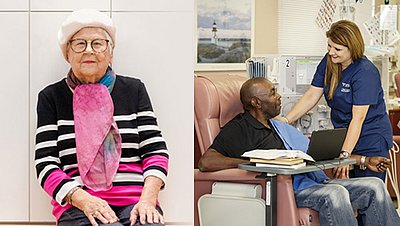Our Annual Reports, Corporate Magazines and Company Profiles.
Joining forces for a better future
Aligning global standards and embedding sustainable change across the Company requires teamwork. We are driven by our mission to provide the best possible care, while contributing positively to society and the environment.




